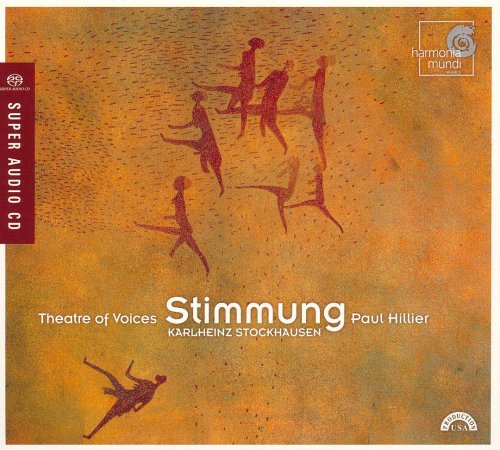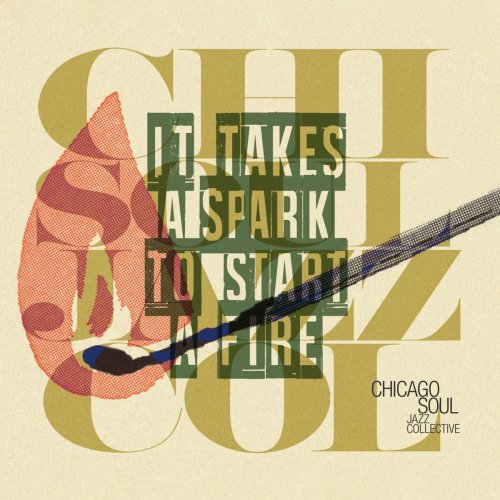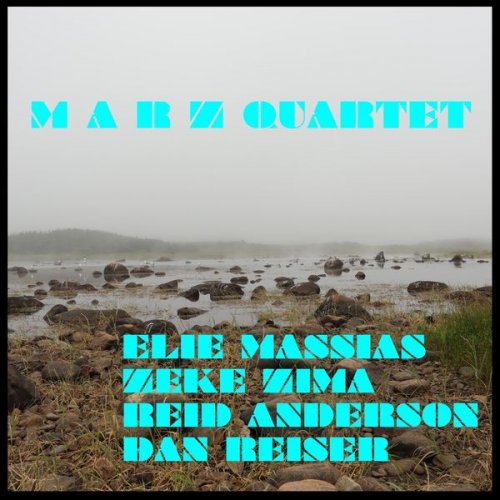Paul Hillier, Theatre Of Voices - Karlheinz Stockhausen: Stimmung (2007)

Artist: Paul Hillier, Theatre Of Voices
Title: Karlheinz Stockhausen: Stimmung
Year Of Release: 2007
Label: Harmonia Mundi
Genre: Classical, Vocal
Quality: FLAC (tracks+.cue,log,scans)
Total Time: 01:18:00
Total Size: 299 Mb
WebSite: Album Preview
Tracklist: Title: Karlheinz Stockhausen: Stimmung
Year Of Release: 2007
Label: Harmonia Mundi
Genre: Classical, Vocal
Quality: FLAC (tracks+.cue,log,scans)
Total Time: 01:18:00
Total Size: 299 Mb
WebSite: Album Preview
01. Model 1 (2:49)
02. Model 2 (1:34)
03. Model 3 (1:23)
04. Model 4 (1:38)
05. Model 5 (1:26)
06. Model 6 (1:20)
07. Model 7 (1:13)
08. Model 8 (0:57)
09. Model 9 (1:14)
10. Model 10 (0:54)
11. Model 11 (2:00)
12. Model 12 (1:32)
13. Model 13 (1:15)
14. Model 14 (1:23)
15. Model 15 (1:36)
16. Model 16 (0:53)
17. Model 17 (0:59)
18. Model 18 (1:27)
19. Model 19 (1:15)
20. Model 20 (0:51)
21. Model 21 (0:48)
22. Model 22 (1:58)
23. Model 23 (0:51)
24. Model 24 (1:44)
25. Model 25 (1:31)
26. Model 26 (1:00)
27. Model 27 (1:01)
28. Model 28 (3:12)
29. Model 29 (2:00)
30. Model 30 (0:45)
31. Model 31 (1:50)
32. Model 32 (2:49)
33. Model 33 (1:15)
34. Model 34 (1:11)
35. Model 35 (1:28)
36. Model 36 (1:32)
37. Model 37 (2:05)
38. Model 38 (1:10)
39. Model 39 (0:52)
40. Model 40 (1:21)
41. Model 41 (1:04)
42. Model 42 (1:34)
43. Model 43 (4:25)
44. Model 44 (0:54)
45. Model 45 (1:24)
46. Model 46 (2:01)
47. Model 47 (1:00)
48. Model 48 (1:10)
49. Model 49 (0:38)
50. Model 50 (0:46)
51. Model 51 (5:00)
Performers:
Bass Vocals – Andrew Hendricks
Conductor – Paul Hillier
Electronics [Sound Diffusion] – Ian Dearden
Mezzo-soprano Vocals – Clara Sanabras
Performer – Theatre Of Voices
Soprano 1 – Else Torp
Soprano 2 – Louise Skovbæch
Tenor 1 – Wolodymyr Smishkewych
Tenor 2 – Kasper Eliassen
Though Karlheinz Stockhausen's Stimmung (Tuning) for six solo voices may be one of his most accessible pieces, relatively few commercial recordings of the hour-long "meditation on a chord" exist. Collegium Vocale premiered the work in 1968, and subsequently took their interpretation -- known now as the "Paris version" -- on the road and into the studio. Singcircle presented a slightly different sonic reading in the mid-'70s; Paul Hillier himself was a part of that recording. Yet in the maturity of his career, Hillier in 2006 decided to approach Stockhausen's iconic vocal work afresh, and prepared the so-called "Copenhagen version"; it is this new version heard on the CD. Hillier has changed nothing of Stockhausen's score, from the Form Diagram of the overall piece to the guidelines for each voice's rendition of the 51 "models." Hillier has, with his ensemble Theatre of Voices, reconsidered the pacing and aural interpretation of the work. Hearing the performance, there is still over an hour's worth of vocal exploration: shifting patterns within the six pitches of the fundamental ninth chord, and the kaleidoscope of the singers' phonetic permutations. But this recording (with credit both to Hillier and to his sound engineers) adds a heightened sense of the physical overtones that had been so important to the composer's invention (Stockhausen claimed "listening to my vibrating skull" as a central feature during its composition). No recording, in this sense, can replace a live performance, yet often the critical "extra" overtone pitches pop out of the texture. The performance -- and its engineering -- also highlight the voices, which in each model are considered definitive of its identity. The vocal balance provides perhaps the only basis for criticism of the recording: the leading voices, along with the spoken text of erotic poetry and names of world deities, emerge from the surrounding textures almost too strongly. Nonetheless, Hillier's performance only adds to the aural understanding of one of the most inventive twentieth century composers.






![Alfredo Rodriguez - ¡Take Cover! (2026) [Hi-Res] Alfredo Rodriguez - ¡Take Cover! (2026) [Hi-Res]](https://img.israbox.com/img/2026-01/22/mbs4zm178vlsnlank5d70k6ab.jpg)

